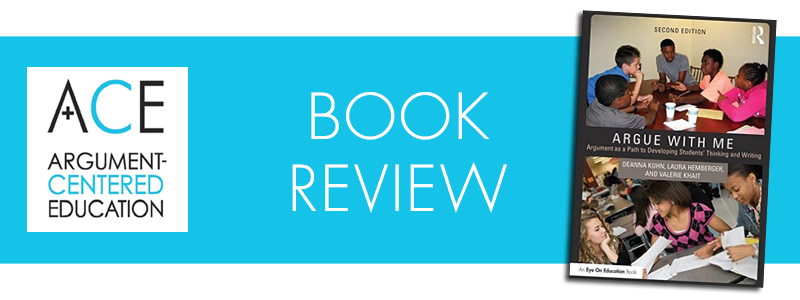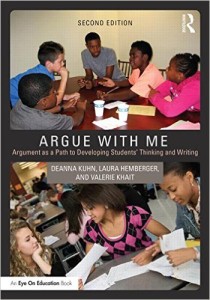The Five Steps to Argumentalizing Instruction
One of the signature features of the services model developed and employed by Argument-Centered Education is its embeddedness. Not only is its teacher coaching embedded within schools and active classrooms, so that teachers get observation-based feedback and targeted modeling support, but its curriculum design and adaptation works from curriculum that its partner schools and teachers are currently working with and to which they are committed. Instead of importing argument-based curriculum from outside, we work to build argumentation from the inside of an individual teacher’s, or department’s, or school’s, or district’s in-place instructional content and methodology.
External curricular components can often feel like diversions from the trajectory of a course. They can be and often are tried a couple times then quietly dropped. They can generate understandable even unspoken resistance from educators who entered the profession in part because they have an intellectual passion for certain fields of learning, things they know, and have dedicated their professional lives to sharing with the next generations. And they can impair the effectiveness of an on-going and embedded professional development strategy because they restrict demonstration of the use of argumentation to an external curriculum.
Book Review: ‘Argue with Me,’ 2nd Edition (Routledge, 2015), by Deanna Kuhn et al
Dr. Deanna Kuhn, professor of education and psychology at Columbia University, has been writing about and closely researching the use of argumentation strategies in K-12 education for 20 years. Professor Kuhn’s work has helped blaze a trail for the application of an argument-centered instructional approach throughout the K-12 curriculum. She has the force of a triple-threat: her books present the pedagogical theory for classroom instruction through argument, she (along with her co-authors on Argue with Me) have put together some of the basic building blocks of an argument-based curriculum, and she has conducted highly credible academic research demonstrating the undeniable performance gains that middle school students experience when required to build and make arguments throughout their literacy instruction.
So the new publication of a second edition of her most recent book is an event for professionals in the argument-education field, like us at The Debatifier. We are very pleased to report that Argue with Me: Argument as a Path to Developing Students’ Thinking and Writing (Routledge, 2015) doesn’t disappoint our keen anticipations.
Professor Kuhn begins this work with a reminder of argument’s significance as an intrinsic educational process.
Arguing in fact has been claimed by cognitive scientists to be not just central to human thinking and reasoning but its central objective. Oaksford et al characterize argument as the umbrella under which all reasoning lies: it is ‘the more general human process of which more specific forms of reasoning are a part.’ Possibly, then, the new standards [e.g., Common Core] are getting to the heart of the matter of thinking well.




